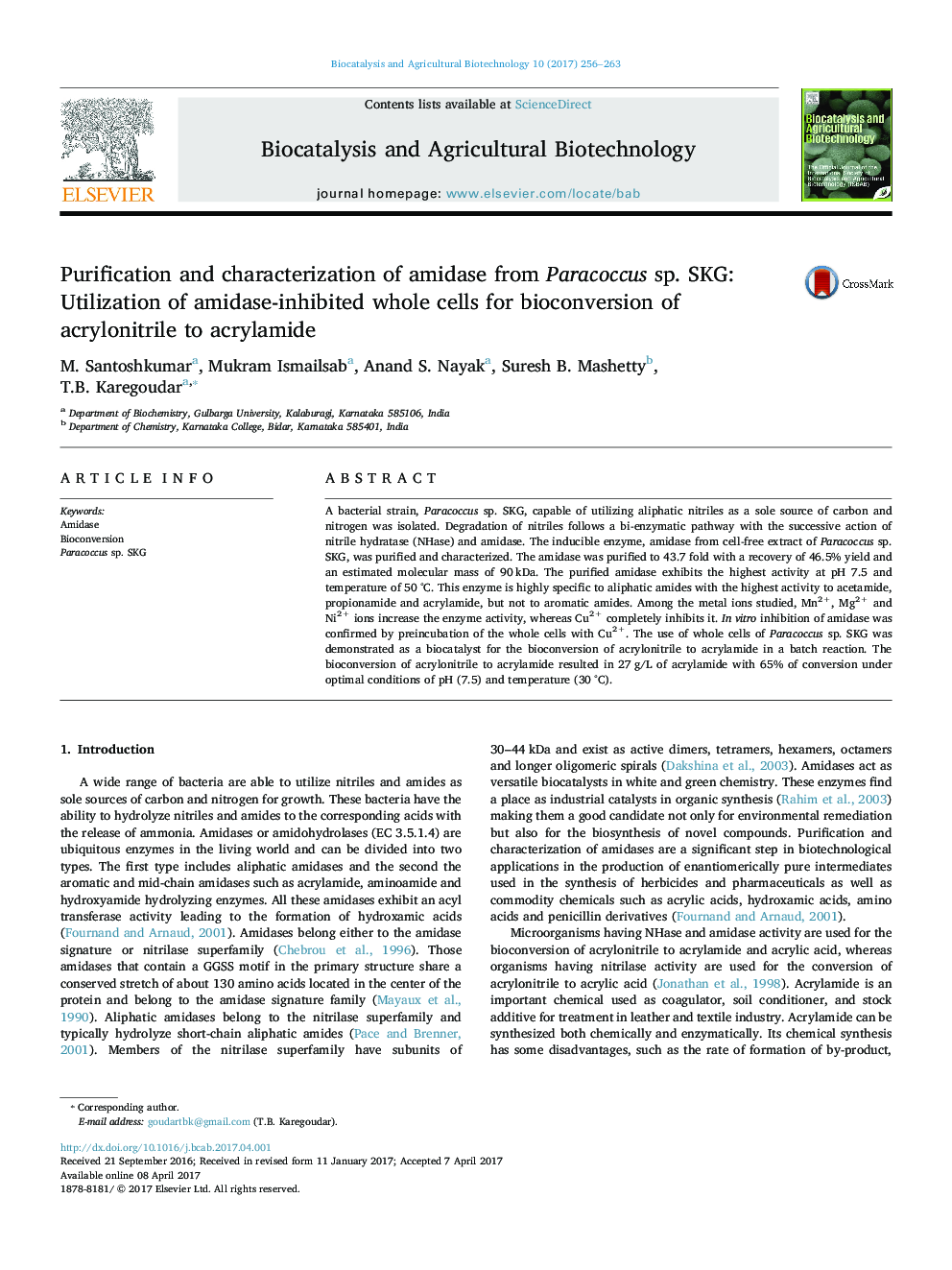| کد مقاله | کد نشریه | سال انتشار | مقاله انگلیسی | نسخه تمام متن |
|---|---|---|---|---|
| 5520466 | 1544902 | 2017 | 8 صفحه PDF | دانلود رایگان |

- Purification and characterization of amidase enzyme from Paracoccus sp. SKG.
- Amidase inhibited whole cells used as biocatalyst for biotransformation.
- Optimised the conditions for biotransformation of acrylonitrile to acrylamide.
- Production of acrylamide by Paracoccus sp. SKG.
A bacterial strain, Paracoccus sp. SKG, capable of utilizing aliphatic nitriles as a sole source of carbon and nitrogen was isolated. Degradation of nitriles follows a bi-enzymatic pathway with the successive action of nitrile hydratase (NHase) and amidase. The inducible enzyme, amidase from cell-free extract of Paracoccus sp. SKG, was purified and characterized. The amidase was purified to 43.7 fold with a recovery of 46.5% yield and an estimated molecular mass of 90 kDa. The purified amidase exhibits the highest activity at pH 7.5 and temperature of 50 °C. This enzyme is highly specific to aliphatic amides with the highest activity to acetamide, propionamide and acrylamide, but not to aromatic amides. Among the metal ions studied, Mn2+, Mg2+ and Ni2+ ions increase the enzyme activity, whereas Cu2+ completely inhibits it. In vitro inhibition of amidase was confirmed by preincubation of the whole cells with Cu2+. The use of whole cells of Paracoccus sp. SKG was demonstrated as a biocatalyst for the bioconversion of acrylonitrile to acrylamide in a batch reaction. The bioconversion of acrylonitrile to acrylamide resulted in 27 g/L of acrylamide with 65% of conversion under optimal conditions of pH (7.5) and temperature (30 °C).
100
Journal: Biocatalysis and Agricultural Biotechnology - Volume 10, April 2017, Pages 256-263